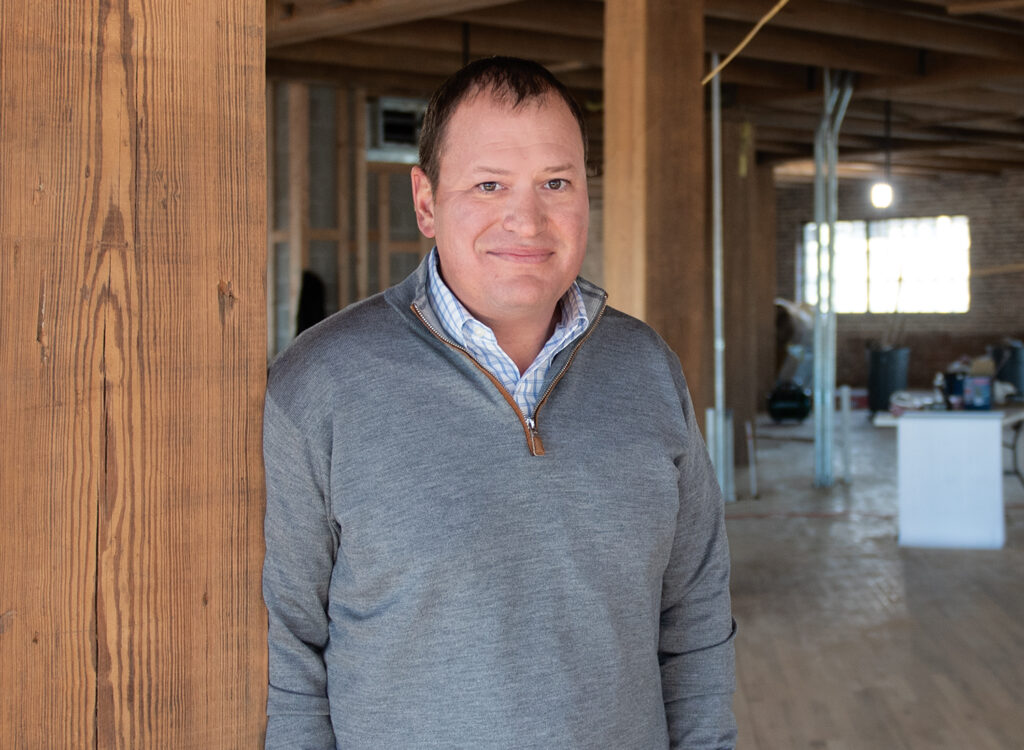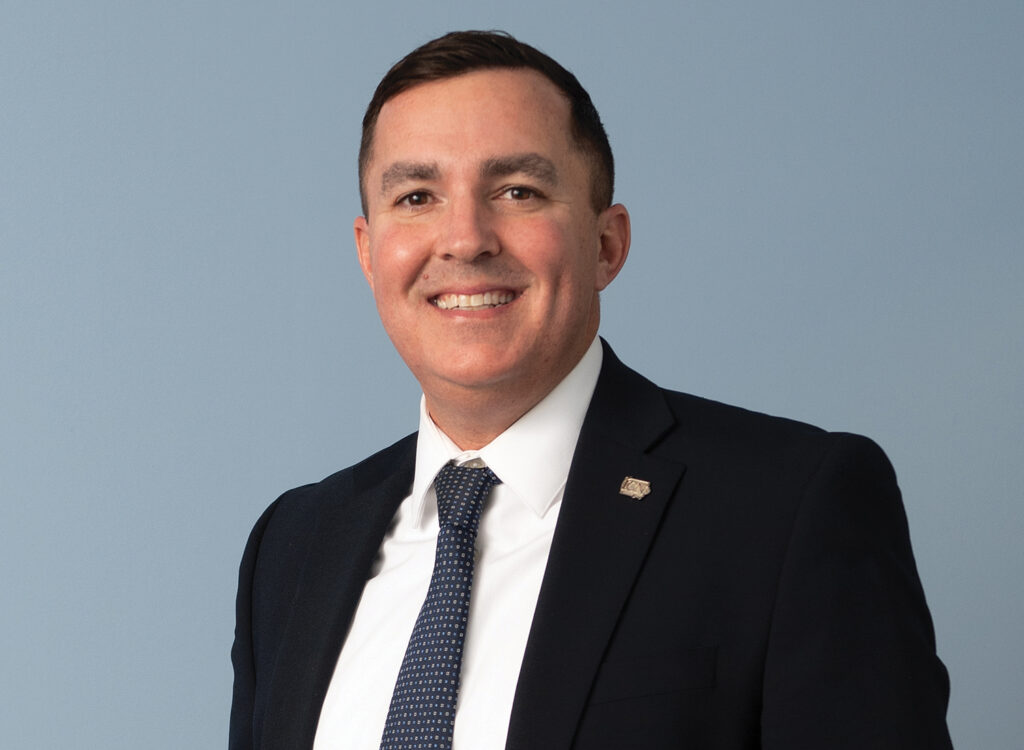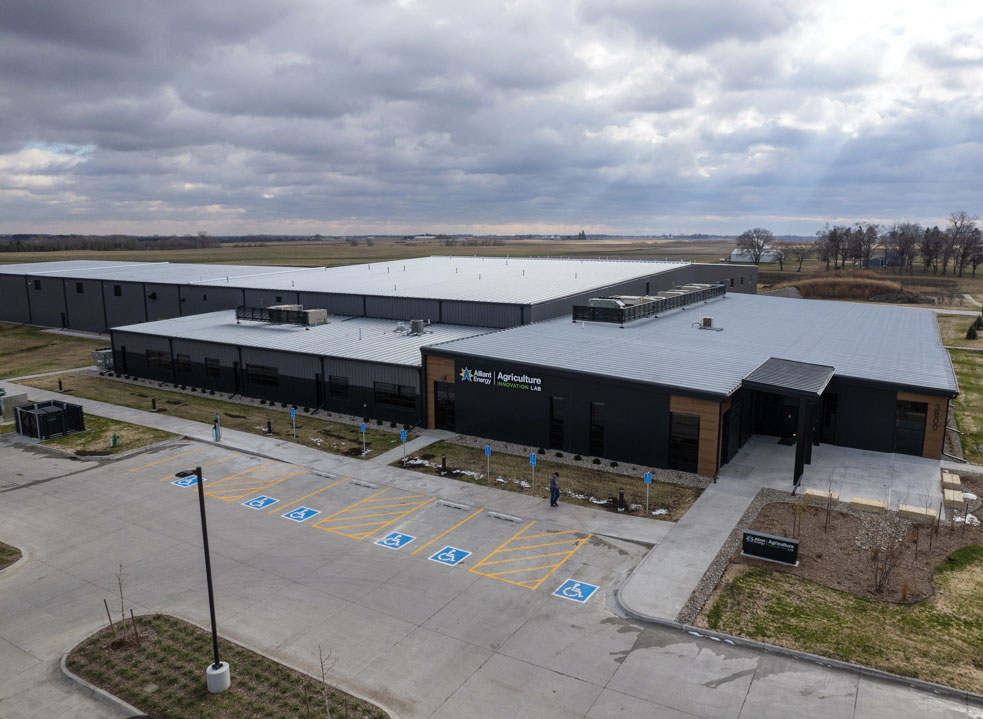A Closer Look: Joshua Barr
Director of Des Moines Civil and Human Rights Commission

ANNE CAROTHERS Jun 3, 2016 | 11:00 am
<1 min read time
0 wordsBusiness Record Insider, Government Policy and LawJoshua Barr is talking about a time the strategy of touting Des Moines’ many accolades backfired.
After hearing how wonderful the city is during his interview here in 2015, Barr turned down an offer to become the city’s new Civil and Human Rights Commission director. The young South Carolina civil rights lawyer had applied to lead what some saw as a tepid, possibly even unnecessary, city agency with a $460,000 budget.
Barr saw the job as an opportunity to implement his big ideas for changing the way civil rights agencies work. He’d laid out those ideas in South Carolina, where he was the state’s fair housing director and a lawyer in the state’s civil rights agency, and had run headlong into the power of the status quo. Earlier that summer Dylann Roof, a 21-year-old enamored with white supremacism, allegedly walked into a black church in Charleston and killed nine church members after sitting with them in a Bible study. Two months before that, Walter Scott, a 50-year-old black man, was shot and killed by a white police officer after a daytime traffic stop for a nonfunctioning brake light. A video showed the officer shooting the unarmed Scott from behind while Scott was fleeing. In that climate, Barr suggested dramatic changes in the way the South Carolina agency operated. When his ideas didn’t have enough support in the agency, he began to look for another place for them and heard about the Des Moines job.
“I turned the job down because they only showed me good stuff in Des Moines. I just felt like if everything is good here, I may as well stay in South Carolina, where I know we have problems. I didn’t want to be a figurehead: ‘I’m the civil rights director, but we don’t have any problems.’ ”
We interviewed Barr after he’d been on the job about six months and learned why he eventually decided to take the job.
What did you want to change in the South Carolina civil rights agency?
Our agency had been there since 1972. As state fair housing director, I toured the state, and I found people didn’t know we existed. We really weren’t doing enough. … A lot of civil rights agencies were started in the ’60s and ’70s, but the model is actually antiquated. They try to address discrimination on a case-by-case basis. But if you pay attention, it’s the same exact case over and over, just with a different person. I thought that we weren’t doing enough to effect change for the greater good of the citizens of South Carolina.
So you came here last year and interviewed for the job along with three other finalists, and the city offered you the job but you turned it down. What changed your mind?
Amelia Morris (the city’s former communications director) called me on behalf of the city manager to find out why. (She initially addressed the issue of salary). I said, “I don’t work for money. I really want to effect change.” That’s who I am, through and through. I want to go to a place where I really know I can effect change. She said: “We’ve got problems! We want to fly you back in and show you the problems.” So they did, and this time they sent me to a disparity conference with the NAACP for Iowa and Nebraska. And there was this passionate base of citizens who want change. I really, really, really liked seeing those citizens who were passionate.”
Do your bosses in Des Moines know you want to change the model here?
That was a big discussion I had with the city manager as far as, “What could I do?” He told me, “We’re looking for answers.” They were looking for a different way because they hadn’t really seen any results from the way they’d been doing things.
Were you aware that shortly before you were hired there was discussion about getting rid of the city’s Human Rights Department? And there historically has been this argument “Why does the city need its own Human Rights Department when we have the Iowa Civil Rights Commision right here in town?”
I was aware… . Does Des Moines need an agency? My answer, the more I’ve been here, is yes, yes, and yes.
1. You need to track what’s happening in the different wards in order to notify city councilmen and the City Council as a whole or city departments to address those issues. Heck, we get calls every day about various issues that are happening, but nobody had been tracking the data. Now we have a system in place to track the complaints we get, the sort of complaint it is, what neighborhood it comes from, what street it’s coming from, what ward it’s coming from, in order to address issues overall. I’ve implemented that system in the almost six months I’ve been here.
2. The Iowa Civil Rights Commission, all it does is investigation — case-by-case investigation. I want us to be much bigger than that. I want to get it so eventually we just have an investigation division — not just that investigation is the be-all, end-all. Because, honestly, that’s not how you make progress. “Oh, we had had 200 complaints last year. We had 300 complaints this year.” Good job, you investigated more cases! No! Bad job! You eventually want to say “OK, you’ve been getting the same complaint from the same ward. Maybe we want to go in here and do a training on some of the issues in order to better affect citizens. Is there anything we need to look at policywise to address this issue in order to make sure that no other ward or the city as a whole goes through that? And you do that to turn down the complaints.
3. Right before I started, they had the report about Des Moines being the ninth-worst city for African-Americans. What are we doing to make sure we are creating equal opportunity for everyone?
You’ve been here six months. Give me your assessment of what you’ve seen. Do you have some areas you would focus on?
I think there needs to be a greater connection between the city and our youth and their education. We’ve been working on some youth initiatives to show them a better route. You have some second-generation Americans who are trying to find their way. They speak two languages and are trying to acculturate to a new culture — different than their parents’ culture — and adolescence. … We want to build a youth coalition of various groups that are already servicing youth and teens … in order to enhance what they’re doing.
Tell me about the size of your department and next steps.
We’re in the process of hiring an intern and two new investigators. Presently it’s myself, an administrative assistant and one investigator. We’re trying to expand the department and, over the next two years, analyze some of the issues we’ve spotted in order to figure out where do we want to go and what ordinances and policies need to change. First of all, I have to train four people, and that’s going to take a lot of time. Eventually, it will be five people. When I came here I had three, and one person retired.
To whom do you report?
Under the ordinance, the city manager is now my boss. The commissioners also have input. The City Council and the mayor also have input. I have a lot of bosses. But ultimately, I report to the city manager.
Anything in Des Moines that you’ve really fallen in love with?
I like Up-Down, the arcade. I’m a still a kid at heart. And all the natural grocers and healthy grocery story options, which I really like because I’m also a vegan. I eat a very heavy plant-based diet, although the occasional slice of red velvet cake is my weakness.
Life-changing turns
(Or how a smart guy who wanted to be a corporate lawyer ended up in Colombia, South America, and then fighting for civil rights)
Joshua Barr thought he wanted to be a corporate lawyer and worked steadily toward that goal. Then in 2008 his brother was shot. Two weeks after he started the MBA program at Pennsylvania State University, a robber walked into the bank where Barr’s brother worked as vice president and shot the elder Barr, seriously wounding him.
“I call that, for me, a moment of awakening. I always wanted to do corporate law and I was on a path, and all of a sudden I realized that life is a little more important than chasing a dollar. It’s about family, friends. It’s about building relationships. And I thought about all the time I’d lost with him and other people in my life, trying to study, with all these degrees, and trying to climb up the ladder of success. …
“At that moment, my mind started to change. During the whole MBA process, I was changing as a person on the inside but doing the same things that I’d always written on my list of goals to achieve. And I just knew that by the time I was done I was a different person and I needed to get away. … I had a metamorphosis. I saw that the path that was laid before me, I didn’t want that path. And Colombia was my escape, my chance to get away and see, ‘What do I want to do?’ “
Barr worked in Colombia teaching and starting a small nonprofit to help children in the poor villages. Along the way, he met his future wife. When he returned to South Carolina, he began practicing law and quickly learned that trying cases wasn’t what he wanted to do.
“I realized that I had to do more. I needed to effect policy. Just working a job without really trying to affect things for the greater good was not really doing any good. Just working case by case … I really wanted to do more.”







